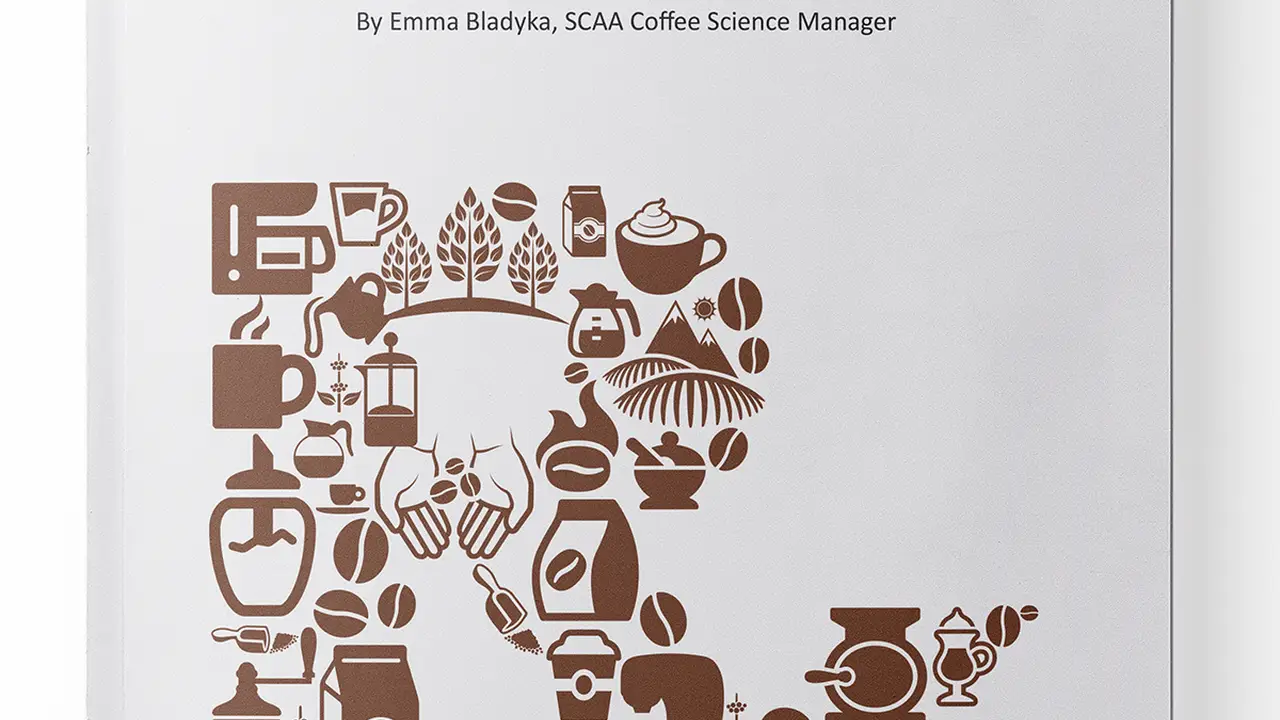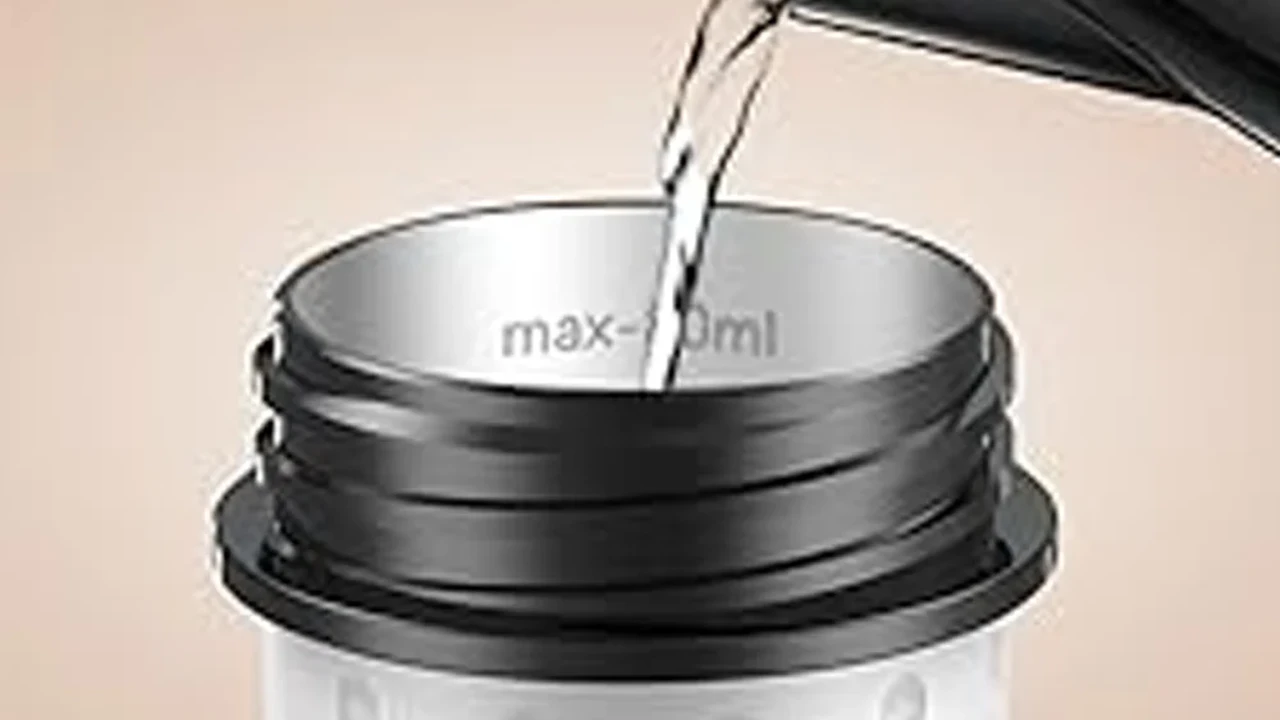Coffee and Health The Latest Research
Stay informed on the health benefits and considerations of coffee consumption. Explore recent studies and expert opinions.

Coffee and Health The Latest Research
Hey coffee lovers! We all adore that morning ritual, the rich aroma, and the invigorating kick that gets us going. But beyond the sheer pleasure, have you ever wondered about the real impact of coffee on your health? For years, coffee has been a subject of intense scientific scrutiny, swinging from being demonized to being hailed as a super-beverage. So, what's the latest scoop? Let's dive into the most recent research and expert opinions to separate fact from fiction.
The Antioxidant Powerhouse Unveiling Coffee's Protective Compounds
One of the most consistent findings in coffee research is its incredible antioxidant content. Coffee beans are packed with polyphenols, hydrocinnamic acids, and other bioactive compounds that act as powerful antioxidants in your body. These compounds help combat oxidative stress, which is linked to various chronic diseases, including heart disease, cancer, and neurodegenerative disorders. Think of them as tiny superheroes fighting off harmful free radicals. Recent studies continue to reinforce this, showing that coffee is a significant source of dietary antioxidants for many people, often surpassing fruits and vegetables in daily intake due to consumption volume.
Heart Health and Coffee A Complex Relationship Explored
For a long time, there was concern that coffee might be bad for your heart, primarily due to its caffeine content and potential to raise blood pressure. However, the tide has turned. Numerous large-scale observational studies and meta-analyses now suggest that moderate coffee consumption (typically 3-5 cups per day) is associated with a reduced risk of cardiovascular diseases, including heart failure, stroke, and coronary artery disease. Some research even indicates a lower risk of atrial fibrillation. The key here is 'moderate.' Excessive intake, especially in individuals sensitive to caffeine, can still temporarily increase blood pressure. The beneficial effects are often attributed to coffee's anti-inflammatory and antioxidant properties, as well as its positive impact on endothelial function (the lining of your blood vessels).
Coffee and Type 2 Diabetes Lowering the Risk
This is one of the most compelling areas of coffee research. Consistently, studies have shown a strong inverse association between coffee consumption and the risk of developing type 2 diabetes. People who drink coffee regularly tend to have a significantly lower risk. This effect is observed with both caffeinated and decaffeinated coffee, suggesting that compounds other than caffeine are at play. Chlorogenic acids, for instance, are thought to improve glucose metabolism and insulin sensitivity. Magnesium, also present in coffee, plays a role in insulin regulation. This is fantastic news for many, but remember, adding excessive sugar and cream to your coffee can negate these benefits!
Neurodegenerative Diseases Coffee's Brain-Boosting Potential
The prospect of coffee protecting your brain is exciting. Research suggests that regular coffee consumption may be associated with a reduced risk of neurodegenerative diseases like Parkinson's and Alzheimer's. For Parkinson's disease, caffeine appears to be a key player, potentially protecting dopamine-producing neurons. For Alzheimer's, the picture is more complex, with various compounds in coffee potentially contributing to brain health, including anti-inflammatory effects and improved blood flow to the brain. While not a cure, incorporating coffee into a healthy lifestyle might be a piece of the puzzle for cognitive longevity.
Liver Health and Coffee A Surprising Ally
Here's a lesser-known but significant benefit: coffee appears to be good for your liver. Studies have shown that coffee consumption is associated with a reduced risk of liver diseases, including cirrhosis, liver fibrosis, and even liver cancer. It seems to have a protective effect against non-alcoholic fatty liver disease (NAFLD) as well. The mechanisms aren't fully understood, but it's thought that coffee's anti-inflammatory and anti-fibrotic properties play a role. This is particularly relevant given the rising prevalence of liver conditions globally.
Cancer Risk and Coffee What the Evidence Says
The relationship between coffee and cancer has been a rollercoaster. Early studies sometimes linked coffee to increased cancer risk, but these were often confounded by other factors like smoking. Modern, more robust research has largely debunked these fears and, in many cases, suggests a protective effect. Coffee consumption has been associated with a reduced risk of certain cancers, including liver cancer, colorectal cancer, and endometrial cancer. The antioxidants and anti-inflammatory compounds in coffee are believed to contribute to these protective effects. However, it's important to note that coffee is not a magic bullet against cancer, and a healthy lifestyle remains paramount.
Digestive Health and Coffee Friend or Foe
For some, coffee is a digestive aid, promoting regularity. For others, it can trigger heartburn or an upset stomach. Coffee stimulates gut motility, which is why it can help with constipation. However, its acidity can be an issue for individuals prone to acid reflux or irritable bowel syndrome (IBS). Decaffeinated coffee might be a better option for those sensitive to caffeine's digestive effects. Overall, listen to your body; if coffee causes discomfort, consider reducing intake or switching to lower-acid roasts.
Bone Health and Coffee Dispelling Myths
There was a long-standing myth that coffee leaches calcium from bones, leading to osteoporosis. Current research largely refutes this. While caffeine can cause a small, temporary increase in calcium excretion, it's generally considered insignificant for bone health, especially if calcium intake is adequate. Most studies show no adverse effect of moderate coffee consumption on bone mineral density, and some even suggest a slight protective effect. So, you can likely enjoy your coffee without worrying about your bones, provided you're getting enough calcium from your diet.
Sleep Quality and Coffee Timing is Everything
This one is pretty straightforward: caffeine is a stimulant, and consuming it too close to bedtime can disrupt sleep. The half-life of caffeine (the time it takes for half of it to be eliminated from your body) is typically around 5 hours, but it can vary widely among individuals. For optimal sleep, most experts recommend avoiding caffeine at least 6 hours before bedtime. If you're sensitive, you might need an even longer window. Decaf coffee is a great alternative for evening enjoyment if you crave the taste without the stimulant effect.
Anxiety and Coffee Individual Sensitivity Matters
While many people enjoy coffee's stimulating effects, some individuals are more sensitive to caffeine and may experience anxiety, nervousness, or jitters, especially with higher doses. This is largely due to individual genetic variations in how quickly caffeine is metabolized. If you find coffee makes you anxious, consider reducing your intake, opting for smaller cups, or switching to decaf. It's about finding your personal tolerance level.
Hydration and Coffee Debunking the Dehydration Myth
The idea that coffee dehydrates you is another persistent myth. While caffeine has a mild diuretic effect, the fluid content of coffee itself largely offsets this. Studies have shown that moderate coffee consumption contributes to daily fluid intake and does not lead to dehydration in regular coffee drinkers. So, you don't need to chug an extra glass of water for every cup of coffee, though staying generally well-hydrated is always a good idea.
Specific Products and Considerations for Health-Conscious Coffee Drinkers
When it comes to coffee and health, it's not just about if you drink coffee, but also what kind and how you prepare it. Here are some product recommendations and considerations:
Low Acid Coffee Brands Minimizing Digestive Discomfort
If you experience heartburn or acid reflux, traditional coffee's acidity can be a problem. Low-acid coffee brands are specifically processed or naturally lower in acid to be gentler on your stomach. They often achieve this through different roasting methods (darker roasts tend to be less acidic) or by using specific bean varieties. Here are a few popular options:
- Puroast Low Acid Coffee: This brand uses a unique roasting process that significantly reduces acidity while maintaining flavor. They offer various roasts and blends. A 12oz bag typically costs around $10-15. It's widely available online and in many supermarkets.
- Tyler's Coffee: Known for being 100% acid-free, Tyler's uses a natural process to remove the acids. They offer both regular and decaf options. A 12oz bag might be slightly pricier, around $15-20, but it's a great option for extreme sensitivity.
- Lifeboost Coffee: This brand focuses on organic, low-acid, and single-origin beans. They claim to test for mycotoxins and pesticides. Their prices are higher, often $20-30 for a 12oz bag, but they cater to a premium, health-conscious market.
Usage Scenario: Ideal for daily drinkers with sensitive stomachs, or those looking to reduce overall acid intake. You can brew these just like regular coffee.
Comparison: Puroast and Tyler's are specifically engineered for low acid. Lifeboost combines low acid with organic and single-origin benefits, appealing to a broader health and quality focus. Price points vary accordingly.
Organic and Fair Trade Coffee Ethical and Healthier Choices
Choosing organic and fair trade coffee can offer both health and ethical benefits. Organic coffee is grown without synthetic pesticides, herbicides, or fertilizers, which means fewer chemical residues in your cup and better for the environment. Fair trade ensures that farmers receive a fair price for their beans, promoting sustainable practices and better living conditions.
- Equal Exchange Organic Fair Trade Coffee: A well-established brand known for its commitment to fair trade principles and high-quality organic beans. They offer a wide range of roasts and origins. A 12oz bag is typically $10-15.
- Allegro Coffee Organic Whole Bean: Available at Whole Foods and other natural food stores, Allegro offers a good selection of organic and often fair trade certified coffees. Prices are competitive, around $10-15 for a 12oz bag.
- Thrive Market Organic Coffee: If you're a Thrive Market member, their own brand of organic and fair trade coffee offers excellent value, often around $8-12 for a 12oz bag.
Usage Scenario: For anyone prioritizing environmental sustainability, ethical sourcing, and minimizing exposure to agricultural chemicals. These can be brewed using any method.
Comparison: Equal Exchange is a pioneer in the fair trade movement. Allegro is widely accessible in health-focused grocery stores. Thrive Market offers a cost-effective option for members. All provide a cleaner coffee experience.
Decaffeinated Coffee Enjoying Coffee Without the Jitters
If you're sensitive to caffeine, or simply want to enjoy coffee later in the day without disrupting sleep, decaf is your friend. The key is to look for decaf processed using methods that avoid harsh chemicals, such as the Swiss Water Process or CO2 process, which preserve more of the coffee's natural flavor and are generally considered healthier.
- Kicking Horse Coffee Decaf Dark: Uses the Swiss Water Process, ensuring a chemical-free decaffeination. Known for its rich, bold flavor, often surprising for a decaf. A 10oz bag is usually $10-15.
- Peet's Coffee Decaf Major Dickason's Blend: While Peet's uses a direct-contact method for decaffeination, they are known for their rigorous quality control. This blend is a fan favorite for its full-bodied taste. A 10.5oz bag is around $12-16.
- Starbucks Decaf Pike Place Roast: A widely available option, also using a direct-contact method. It offers a consistent, familiar flavor profile for those who enjoy Starbucks. A 12oz bag is typically $10-15.
Usage Scenario: Perfect for evening coffee, individuals with caffeine sensitivity, or those looking to reduce overall caffeine intake. Brew as usual.
Comparison: Kicking Horse stands out for its Swiss Water Process and robust flavor. Peet's and Starbucks offer widely accessible and consistent decaf options, though their decaffeination methods are different. The choice often comes down to flavor preference and availability.
Coffee Alternatives Beyond the Bean
For those who love the ritual but can't tolerate coffee at all, or simply want to explore other options, coffee alternatives can be a great choice. These often use ingredients like chicory, dandelion root, or mushrooms to mimic the taste and experience of coffee, often with added health benefits.
- Rasa Adaptogenic Coffee Alternative: A blend of roasted roots, mushrooms, and herbs designed to provide sustained energy without caffeine, and support overall well-being. A 8.8oz bag can be pricey, around $30-40, but it's a unique functional beverage.
- Dandy Blend Instant Herbal Beverage: Made from roasted dandelion root, chicory, beet root, and barley. It has a coffee-like taste and is naturally caffeine-free. A 2lb bag is very economical, around $20-25, and lasts a long time.
- Mushroom Coffee (e.g., Four Sigmatic): Combines instant coffee with functional mushrooms like Lion's Mane or Chaga. These offer a lower caffeine content than regular coffee and the added benefits of mushrooms. A box of 10 packets is typically $10-15.
Usage Scenario: For individuals avoiding caffeine entirely, those with extreme coffee sensitivity, or people looking for added functional benefits from their morning beverage. Preparation varies from instant to brewing like tea.
Comparison: Rasa is a premium adaptogenic blend. Dandy Blend is a cost-effective, pure herbal alternative. Mushroom coffees offer a blend of coffee and functional ingredients. Each caters to different needs and preferences.
The Bottom Line Moderation and Personalization
So, what's the takeaway from all this research? For most healthy adults, moderate coffee consumption appears to be safe and, in many cases, associated with significant health benefits. The key word here is 'moderate' – typically defined as 3 to 5 standard cups (around 400 mg of caffeine) per day. However, individual responses to coffee and caffeine can vary widely due to genetics, lifestyle, and underlying health conditions. Listen to your body. If coffee makes you feel anxious, disrupts your sleep, or causes digestive issues, it might be time to cut back, switch to decaf, or explore alternatives. And remember, the health benefits of coffee are best realized when it's part of an overall healthy lifestyle that includes a balanced diet, regular exercise, and adequate sleep. Don't rely on coffee alone to be your health panacea. Enjoy your brew responsibly, and savor the moments it brings!
:max_bytes(150000):strip_icc()/277019-baked-pork-chops-with-cream-of-mushroom-soup-DDMFS-beauty-4x3-BG-7505-5762b731cf30447d9cbbbbbf387beafa.jpg)





